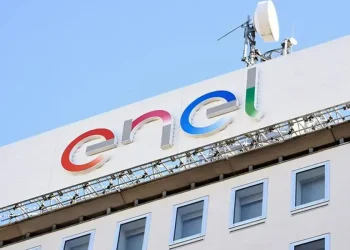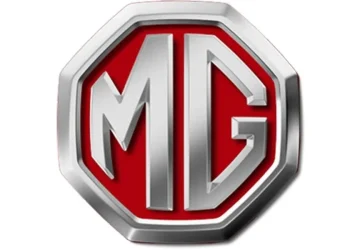LONDON (news agencies) — Google lost its last bid to overturn a European Union antitrust penalty, after the bloc’s top court ruled against it Tuesday in a case that came with a whopping fine and helped jumpstart an era of intensifying scrutiny for Big Tech companies.
The European Union’s top court rejected Google’s appeal against the 2.4 billion euro ($2.7 billion) penalty from the European Commission, the 27-nation bloc’s top antitrust enforcer, for violating antitrust rules with its comparison shopping service.
Also Tuesday, Apple lost its challenge against an order to repay 13 billion euros ($14.34 billion) in back taxes to Ireland, after the European Court of Justice issued a separate decision siding with the commission in a case targeting unlawful state aid for global corporations.
Both companies have now exhausted their appeals in the cases that date to the previous decade. Together, the court decisions are a victory for European Commissioner Margrethe Vestager, who’s expected to step down next month after 10 years as the commission’s top official overseeing competition.
Experts said the rulings illustrate how watchdogs have been emboldened in the years since the cases were first opened.
One of the takeaways from the Apple decision “is the sense that, again, the EU authorities and courts are prepared to flex their (collective) muscles to bring Big Tech to heel where necessary,” Alex Haffner, a competition partner at law firm Fladgate, said by email.
The Google ruling “reflects the growing confidence with which competition regulators worldwide are tackling the perceived excesses of the Big Tech companies,” said Gareth Mills, partner at law firm Charles Russell Speechlys. The court’s willingness “to back the legal rationale and the level of fine will undoubtedly embolden the competition regulators further.”
The shopping fine was one of three huge antitrust penalties for Google from the commission, which punished the Silicon Valley giant in 2017 for unfairly directing visitors to its own Google Shopping service over competitors.
“We are disappointed with the decision of the Court, which relates to a very specific set of facts,” Google said in a brief statement.
The company said it made changes to comply with the commission’s decision requiring it to treat competitors equally. It started holding auctions for shopping search listings that it would bid for alongside other comparison shopping services.
“Our approach has worked successfully for more than seven years, generating billions of clicks for more than 800 comparison shopping services,” Google said.
European consumer group BEUC hailed the court’s decision, saying it shows how the bloc’s competition law “remains highly relevant” in digital markets.
“It is a good outcome for all European consumers at the end of the day,” Director General Agustín Reyna said in an interview. “It means that many smaller companies or rivals will be able to go to different comparison shopping sites. They don’t need to depend on Google to reach out to customers.”
Google is still appealing its two other EU antitrust cases: a 2018 fine of 4.125 billion euros ($4.55 billion) involving its Android operating system and a 2019 penalty of 1.49 billion euros ($1.64 billion) over its AdSense advertising platform.
Despite the amounts of money involved, the adverse rulings will leave a small financial dent in tow of the world’s richest and most profitable companies. The combined bill of 15.4 billion euro ($17 billion) facing Apple and Alphabet, Google’s parent company, represents 0.3% of their combined market value of 4.73 trillion euro ($5.2 trillion).
Apple’s stock price dipped slightly in Tuesday’s late afternoon trading while Alphabet shares rose 1%, signaling investors were unfazed by the developments in Europe.
Those three cases foreshadowed expanded efforts by regulators worldwide to crack down on the tech industry. The EU has since opened more investigations into Big Tech companies and drew up a new law to prevent them from cornering online markets, known as the Digital Markets Act.
European Commissioner and Executive Vice President Margrethe Vestager said that the shopping case was one of the first attempts to regulate a digital company and inspired similar efforts worldwide.
“The case was symbolic because it demonstrated even the most powerful tech companies could be held accountable. No one is above the law,” Vestager told a press briefing in Brussels.
Vestager said the commission will continue to open competition cases even as it enforces the Digital Markets Act. The DMA is a sweeping rulebook that forces Google and other tech giants to give consumers more choice by following a set of dos and don’ts.










 American Dollar Exchange Rate
American Dollar Exchange Rate